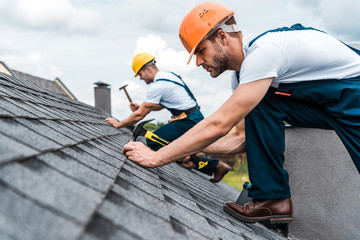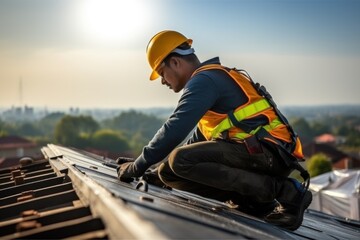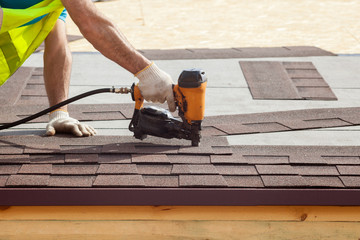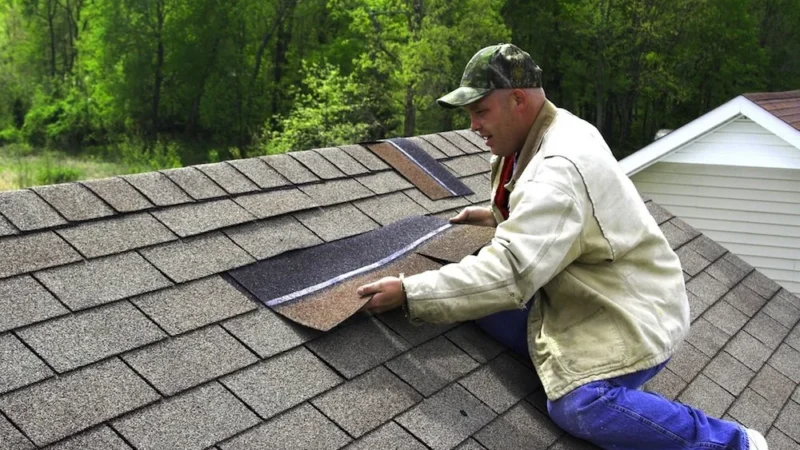Commercial And Residential Roofing Services
Although all roofs aid the same function of protecting buildings from the elements, they differ in design and construction. Some of these differences include aesthetics, longevity, and how well they can withstand local weather conditions.
Commercial roofing is different from residential because it is usually larger and requires a more thorough installation process. Large commercial jobs also tend to be time-limited, so a single snag can delay the project significantly.
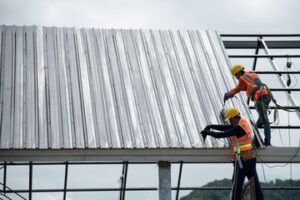
Installation
Roof installation is one of the most important services that commercial and residential roofing companies can offer. This is because roofs are vital to the structural integrity of any building and need to be built to withstand the elements and protect the interior. There are many different roofing options available for both homes and businesses, so the correct roof system must be selected. This is where the expertise of a professional can make all the difference.
While the function of a roof is the same for both commercial and residential buildings, some key differences can impact the cost, design, maintenance requirements, and other factors. For example, residential roofs are typically based on shingles, while commercial roofs can be made from a variety of materials including single-ply (TPO, PVC, EPDM), built-up roofing systems, tar and gravel, and concrete.
Residential roofs tend to be simpler to install than their commercial counterparts. This is because residential roofs are smaller and usually have less slope than commercial roofs. This allows a roofing contractor to complete a residential roof more quickly, often within a day or two.
Despite their relative simplicity, a residential roof still requires a great deal of work and preparation. Typical roof construction involves a plywood decking base, the application of an underlayment, and then the installation of the shingles. In most cases, it is necessary to install a layer of felt paper between the underlayment and the shingles to prevent leakage and other problems.
Commercial roofs, on the other hand, require a more complex process to create and install. This is because commercial roofs are often larger than the average home and need to be built around external piping, air flow systems, smoke stacks, and other features. This is where the skill of a skilled roofer can come into play, and it is why hiring a roofing company that has extensive experience in both commercial and residential roofing is essential.
Besides being able to install roofs of all types, a residential and commercial roofing service should also be able to perform a wide range of maintenance tasks. This includes routine inspections and preventative maintenance, fixing any leaks or other damage, and cleaning the gutters to ensure that debris does not cause blockage. Similarly, a roof should be regularly checked for critters such as squirrels and raccoons, which can cause considerable damage if they get into a roof space.
Repairs
Commercial roofs often need repairs for unforeseen issues or due to regular wear and tear. These issues are sometimes caused by environmental conditions such as wind, snow, and hail or by internal factors like water leaks and HVAC problems. A commercial roofing company can help with both minor and major repairs. In addition to fixing leaks, these companies can also replace shingles, repair or replace flashing, and reseal the roof. They can also help with other parts of the roof that may need attention, such as gutters and soffits.
Residential roofs are typically pitched and have a steep slope that helps to easily drain rain, snow, and debris. They are easier to maintain and repair, as well as offer better curb appeal and functionality than flat roofs. They usually use materials that are designed to work with a steep slope, such as asphalt shingles. These roofing materials provide a wide range of color, texture, and style options.
A commercial roof has a low or flat slope and is often much larger than a residential roof. It is built with a variety of materials, including galvanized steel, tin, and copper. Many commercial roofs are built with a rubber membrane, and some utilize a built-up roof system that includes multiple layers of reinforced felts, bitumen, and gravel. They also include vapor barriers and insulation to help with energy efficiency and heating and cooling costs.
Both commercial and residential roofs require maintenance from time to time. During these services, the roofing contractor will inspect the roof and look for any signs of damage or problems. They can also recommend upgrades to increase the energy efficiency of a roof, such as ice-melting systems or vents. They can also perform regular maintenance to keep the roof in good condition and prevent any costly repairs.
A home’s roof is usually high up from the ground, and it can be difficult to spot problems from the outside. Most residential roofing services offer a maintenance plan that can catch any problems early on, such as the loss of a shingle or damage from harsh storms. These contractors will visit the home regularly, check for any problems, and fix them as needed.
Maintenance
Both commercial and residential roofing require maintenance services. These services help to keep roofs in good condition and protect the inside of buildings from harsh weather elements. These companies can offer regular inspections to look for damage, and they can also make repairs to keep a roof functioning properly.
Many people think that all roofs are the same, but there are important differences between commercial and residential roofing. These differences are based on slope, size, roof material, and maintenance requirements. Commercial roofs are often low-slope or flat and must accommodate mechanical equipment such as air conditioning units and heating systems. They are also usually larger than residential roofs. This makes them more difficult to inspect and repair than residential roofs.
Most professional roofing companies can provide both commercial and residential roof maintenance services. They can inspect a roof and look for potential problems, such as leaks and ice damming. They can also remove debris from the gutters to prevent blockages and clogging. In addition, they can help to ensure that the downspouts are open to drain water away from the roof.
Residential building owners can also perform a visual inspection of their roofs to check for damage, especially after severe storms. This can be done from the ground, but it is generally safer for building owners to hire a professional roofing company to inspect and repair the roof.
Leaks on a residential roof are common and can be caused by several factors, including shingles that have come loose or flashing that has become loose. In most cases, the problem can be solved in a few hours by a professional roofing company. Leaks on a commercial roof, on the other hand, are usually more serious and can be caused by numerous factors, such as structural issues or deterioration of the surface.
The skill set needed to be a commercial roofer is different from that of a residential roofer. Commercial roofers must be well-versed in the multitude of roof material options and know how to properly repair them. Residential roofers, on the other hand, work primarily with shingle roofs and require less specialized skills.
Insurance
Roofing businesses face a variety of insurance issues. These include workplace injuries, business interruptions, damage to equipment, and claims of shoddy workmanship. To protect their companies, many roofing professionals purchase small business insurance that includes several coverage types. Often, these policies can be customized to fit specific business needs.
A good place to start is with a business owner policy (BOP). This policy bundles three essential coverage types, and it usually costs less than buying them individually. In addition to general liability insurance, a BOP may also include commercial property insurance and business interruption insurance. Adding a tools and equipment floater to this policy can help roofers protect their specialized equipment against losses or theft.
Workers’ compensation insurance is a must for any roofing company that employs people. This type of insurance pays for treatment costs, injury lawsuits, and lost wages for employees who are injured on the job. Roofers frequently fall off of ladders and other structures, so this type of insurance can be very helpful for them and their families.
When purchasing this insurance, it’s important to accurately classify the duties performed by each employee. It’s also a good idea to consult an experienced insurance agent who specializes in construction and roofing businesses. These agents can provide advice on how to save money by accurately classifying worker’s duties and reducing the risk of overcharging for workers’ compensation insurance.
Inland marine insurance is another coverage option that’s sometimes available to roofing contractors. This type of insurance provides protection for property and equipment that’s in transit between jobs or when it’s stored at a facility. Some roofing professionals use this insurance to protect mobile units that they use for shingle delivery or to protect the contents of trucks used to transport materials and equipment.
Other small business insurance options for roofers include professional liability insurance, which protects the business against claims that it misrepresented its services or caused financial loss to a client. Finally, cyber liability insurance is essential coverage for roofing contractors that store customer information online or process credit card transactions.

